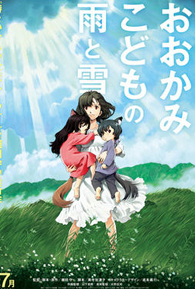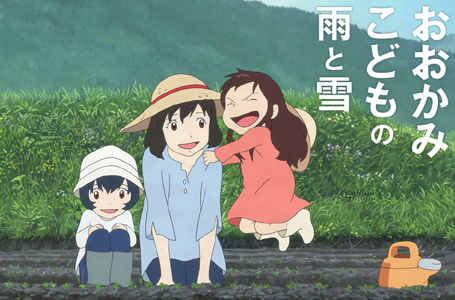
Oh. She had yiffy sex with a wolf-man and her two toddlers, the product of that union, are capable of switching between wolf and human form. There's question that looms throughout the film — will Hana be able to do justice to her children's dual heritage despite being a single, widowed mother with no male/wolf mentor figure for them to emulate? Will the children choose their human or wolf heritage or can they find a balance of both? Will they answer to the call of nature or nurture?
Sure, there's that fantastic detail but like in all of Mamoru Hosoda's socially conservative stories so far (among them The Girl Who Leapt Through Time and Summer Wars), the story is really about the bonds of family and community, of the selflessness that a healthy community showers on individuals, on the selflessness that parents shower on their children, and how individuals grow up and find maturity when they find their place in the larger community.
Unlike Summer Wars where the socially conservative message seemed preachy, the intense and heartfelt storytelling, the real drama, and the almost Miyazaki-esque ecological message of Wolf Children makes it easier to swallow.












 列印版本
列印版本



















讀者回應
搶先發表第一個回應吧!
請先登入再使用此功能。